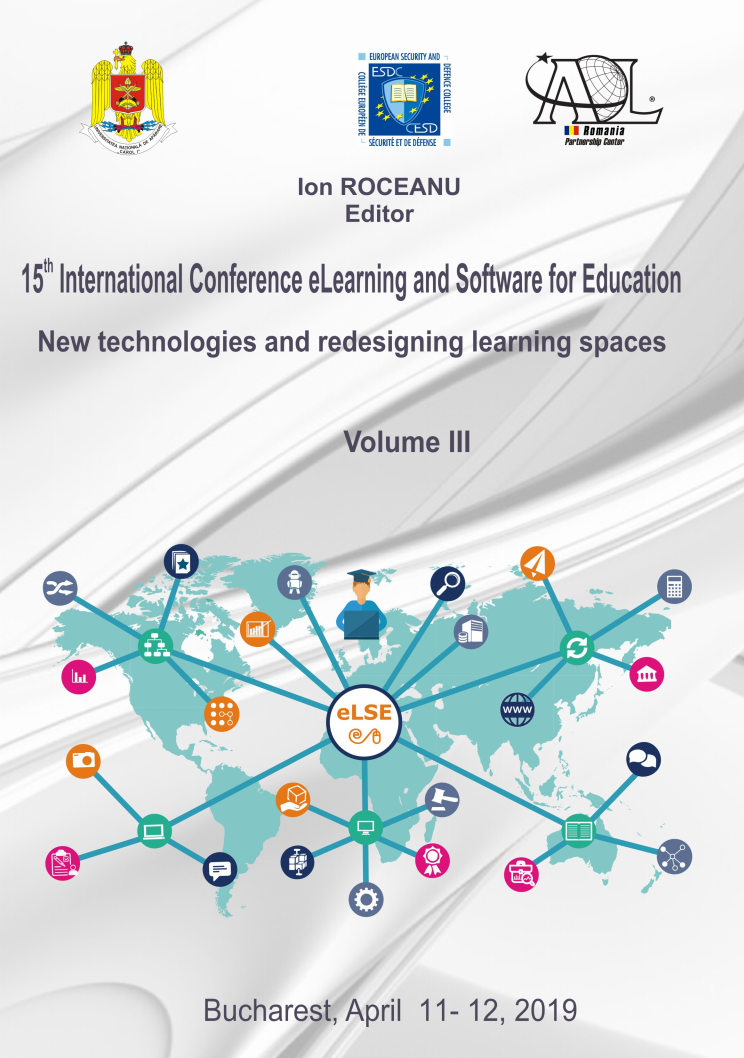The Kolmogorov Complexity as a Tool of Phd Students’ Preparation to be a Researcher
The Kolmogorov Complexity as a Tool of Phd Students’ Preparation to be a Researcher
Author(s): Elena Smirnova, Maria Stepanova, Ksenya ZverevaSubject(s): Social Sciences, Education, Higher Education
Published by: Carol I National Defence University Publishing House
Keywords: ERASMUS+; Kolmogorov complexity methods; engineering education;
Summary/Abstract: ERASMUS+; Kolmogorov complexity methods; engineering education;This paper is about new approach to teaching in Bauman Moscow State Technical University, Russia, carrying on now in the framework of the ERASMUS+ Capacity Building for Higher Education just starting a project (# 586060-EPP-1-2017-1-RO-EPPKA2-CBHE-JP). The name of the project is "Excellence in Engineering Education through Teacher Training and New Pedagogic Approaches in Russia and Tajikistan". It concerns to Kolmogorov Complexity usage in PhD students curricula. Introduction part is about the growth of massive amount of data generated by different sources at real time or near real time. Generally, data is heterogeneous by its content and exists at every human sphere such as education, government, finance, medicine and so on. That cause fundamental issues in data storage, data security and high-speed access to data. Such issues directly related to new research aims. The first part of the paper describes an example of one PhD student's approach to her research using Kolmogorov complexity. The second part of the paper is about the managing immense volumes of data, which was possible and held only with help of supercomputers that lead to great expenses. Applying of distributed computing systems allow to assign and handle operations on homogeneous or heterogeneous nodes with less expenses compared to supercomputers. However, data and operation partition and distribution among nodes could be a challenge by itself. Furthermore, nodes interaction can cause significant difficulties as generally distributed systems consist of great number of nodes, which could be constant in quantity or constantly growing. In practice, most systems should be scalable due to incessant data growth and tasks for processing that means that any system needs to meet with such circumstances and not limited by constant number of nodes. The third part of the paper is about the possibility's analyses of Kolmogorov complexity usage for optimal way of data dividing and processing in distributed computing systems without quantity nodes limitations. The Conclusion show that the investigation is fundamental as distributed systems could be beneficial at any spheres and organizations including universities and business companies and the PhD students could use Kolmogorov complexity as an investigation tools. Besides, this paper's aims is to describe the advantages, disadvantages of Kolmogorov complexity with criticism and arguments.
Journal: Conference proceedings of »eLearning and Software for Education« (eLSE)
- Issue Year: 15/2019
- Issue No: 03
- Page Range: 119-124
- Page Count: 6
- Language: English

